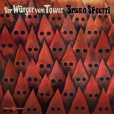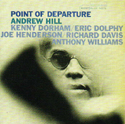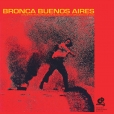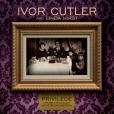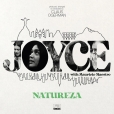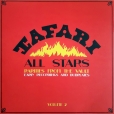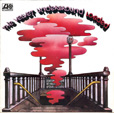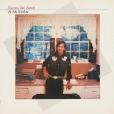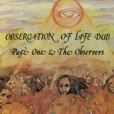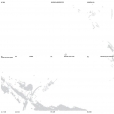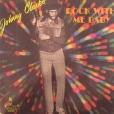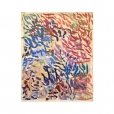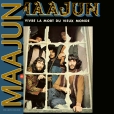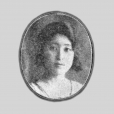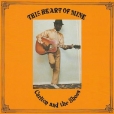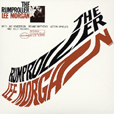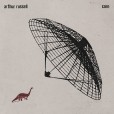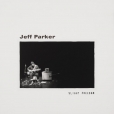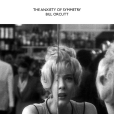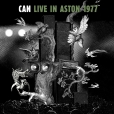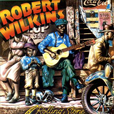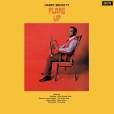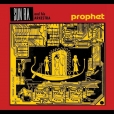Your basket is empty

A cor-blimey line-up, and a masterpiece, recorded on the first day of spring in 1964. Dorham, Dolphy, Joe Henderson, Richard Davis, Tony Williams.
‘Classic Vinyl Series.’
The first time out for this buried treasure recorded in 1977 at Columbia Studios in New York with Claus Ogerman.
Featuring fellow Brazilians Mauricio Maestro, Nana Vasconcelos and Tutty Moreno, and in-demand statesiders including Michael Brecker, Joe Farrell and Buster Williams, it kicks off with a sensational eleven-minute version of her anthemic Feminina. Check out Descompassadamente, too. Lovely stuff.
Gritty, diggers’ selection of sides originally out on Wackies, Aires, Earth and co; plus some tough dubplates featuring Leroy Sibbles and Stranger Cole.
Sibbles chips in his own Guiding Star rhythm from Studio One days, re-worked at Bullwackies; and reputedly that’s him undercover on the opener with Little Roy, ripping off Glen Brown’s Wedden Skank.
Tough dub counterpart to The Heptones’ Better Days set.
‘A mesmerizing blend of ambient, experimental, and electronic sounds. Each composition is an invitation to explore altered states of consciousness, with the music serving as a portal to uncharted territories of the mind. The album offers a glimpse into an inner world, where sound, inspiration, and introspection create a deeply moving and spiritually enriching musical journey.’
‘The debut album from this Berlin and Edinburgh-based duo is an intricate, robust, unique collection of songs, underpinned by intensely textured, interwoven guitars. It nods to Jim O’Rourke’s lounge numbers and the droll lyricism of Jonathan Richman; to Vini Reilly in its serpentine sparseness; to an unlikely confluence of Tortoise and Weather Report.
‘It opens in a flash of light, like a comet, with Mr. Wind-Up Bird. Passages of density rise up from stilled valleys. It’s easy to imagine the pair looking out over the rolling fields of their garden studio in East Lothian.
‘There is a similar crispness and precision to the percussion-work on A Certain Arrangement Of Atoms — where an old, slightly out of tune piano adds a few expressionist strokes to this pointillism, loosening the tension., till all we’re left with is the bass.
‘Although the album orbits around the pendulum sway of The Older I Get, it’s What Cats Think About that stands out most. It’s a Sun City Girls kind of curveball— warmly engaging, ramshackle, intimate, strange.’
‘The forerunner of Maajun. Five musicians — Jean-Pierre Arnoux, Cyril and Jean-Louis Lefebvre, Alain Roux and Roger Scaglia — and three times as many instruments at the service of electric-poetic, guerrilla folk and blues, which evokes the fantasy coming-together of Frank Zappa and Jacques Higelin, Sonny Sharrock and the Art Ensemble Of Chicago.’
Haunting, ravishing blends of western art song, blues and jazz with traditional and classical Japanese music. Wonderful.
Lee Morgan (trumpet), Joe Henderson (tenor sax), Ronnie Mathews (piano), Victor Sproles (bass), Billy Higgins (drums).
Japanese one-off CD. The LP is in the Blue Note Classics series.
The sequel to Calling Out Of Context; another precious extraction from Arthur’s original, completed 1/4” tape masters.
Russell himself compiled this material thirty years ago, on three separate test pressings, labelled El Dinosaur, Indian Ocean and Untitled: five brilliant alternate versions of key works — including This Is How We Walk On The Moon — and four offerings new to the world, triumphantly culminating in the rapt, restless Ocean Movie. Terrific.
His first solo recording, in 2013-14; on top-quality vinyl, in a flipback sleeve.
‘Parker combines the dark tonal palette & percussive attack he’s long been known for with real-time processing elements & field recordings, deftly crafting a unique world of solo guitar music — multilingual, mysterious, alive with extraordinary sonic events, with a sturdy intelligence in charge & a raw homestyle vibe. The title composition sets the album’s cavernous mood. Terse lines & ricocheting loops morph into a gnarly ambient section that resembles Neil Young droning out over a vg+ copy of Discreet Music. Parker creates a different sort of ambient space in his take on Frank Ocean’s Super Rich Kids, bending the melody around a bossa nova rhythm into a moodsville tone poem. Parker makes an extraordinary long-form statement out of Chad Taylor’s Mainz, a piece he first recorded with Taylor & Chris Lopes on the album Bright Light In Winter. Twice the length of the trio recording, the multi-layered soliloquy finds Parker leaping from the high rung to damn near orchestral heights, pushing his techniques & concepts to the breaking points. To say Lush Life comes with formidable baggage is an understatement. Parker achieves instant classic status with a rendition that sounds beamed-in from a decommissioned satellite — burned out, covered in space grit, yet still formally nuanced & beautifully reflective of Strayhorn’s world-weary lyrics… An artist who’s clearly taking his music to the next level.’
1928-35 recordings by the Memphis bluesman (with Cherokee Indian close by in his family tree) — including That’s No Way To Get Along, later covered by the Rolling Stones as Prodigal Son.
